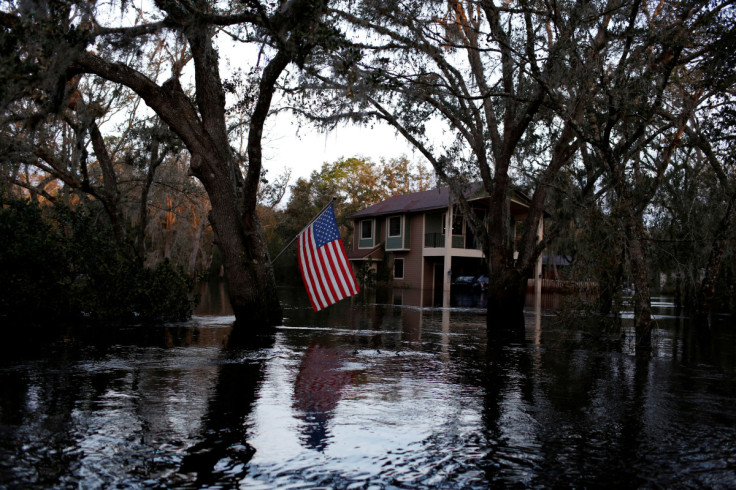FBI And FEMA Warn Against Against Charity Scams After Hurricane Ian, Here's What To Look Out For
The Department of Justice and FEMA want Americans to be aware of charities and insurance scams after Hurricane Ian's devastating wake.
Charity and insurance fraud attempts are often common after natural disasters. Since Hurricane Katrina in 2005, scammers have made millions targeting Americans for donations, according to the FBI.
Many of the fraudsters are brought to justice. The FBI reported in October 2008 that the Hurricane Katrina Fraud Task Force brought federal charges against 907 suspects across 43 federal judicial districts on emergency-benefit fraud, identity theft, procurement fraud, and public corruption.

The National Center for Disaster Fraud (NCDF) was founded in 2005 following Hurricane Katrina to detect, prevent, and prosecute fraud related to natural and man-made disasters. NCDF released a statement with the Justice Department on Friday that provided tips on how to avoid scams.
Some of the tips include verifying the phone numbers of charities as the same as those listed on their official website and checking for certifications listings on the Better Business Bureau's Wise Giving Alliance, Charity Navigator, GuideStar, or Charity Watch.
The NCDF also advises not to open suspicious emails, as charity scammers often use phishing attacks to spread malware.
Scammers are also targeting victims on social media. The public should avoid crowdfunding sites such as GoFundMe or IndieGogo and instead opt for well-known and vetted charities, such as the Red Cross or Salvation Army.
The Justice Department also warns that Americans affected by Hurricane Ian are more likely to be victims of insurance fraud while rebuilding their disaster-ridden communities.
It is important to note that any home improvement company that claims to be partnered with an insurance company should never ask for policy numbers, coverage details, or other personal information under state licensing.
In conjunction with FEMA, the FBI offices in Columbia, South Carolina, and Tampa, Florida, also advise Americans to be aware that federal agencies will never ask for personal financial information or fees to apply for disaster assistance.
© Copyright IBTimes 2024. All rights reserved.





















